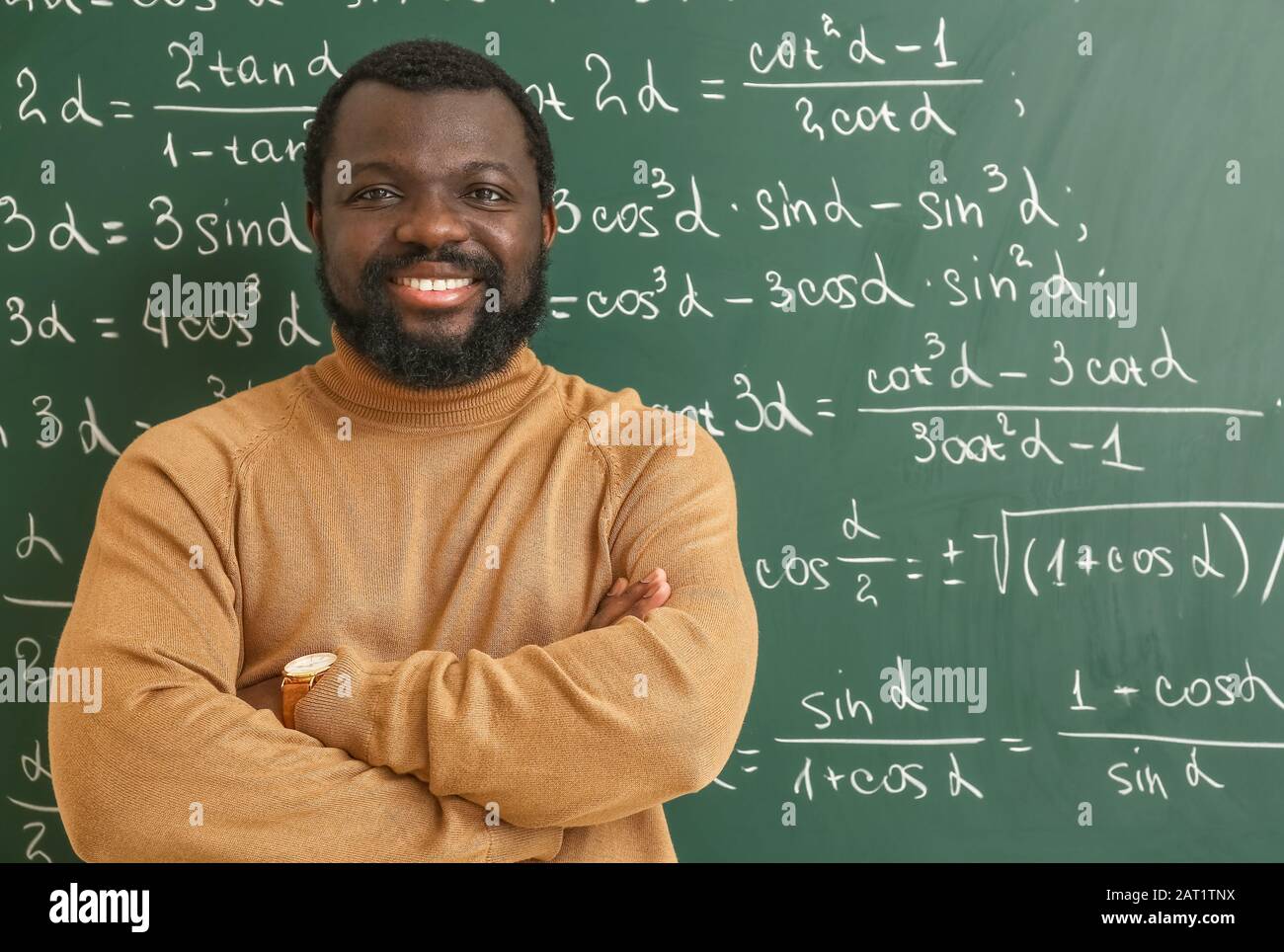Ways experienced math teachers mentor new faculty in mathematics departments
Wiki Article
Attaining Venture Quality: Comprehending Market Standards and Strategic Leadership for Mathematics Professors
Achieving business excellence in mathematics education necessitates a careful evaluation of sector standards and the duty of strategic management. Mathematics professors have to recognize just how these criteria shape curriculum and teaching techniques. Additionally, effective leadership can drive cooperation and professional advancement amongst teachers. This multifaceted method questions concerning the functional effects for pupils' career readiness. What strategies can faculty adopt to bridge the void in between education and industry needs?The Significance of Industry Standards in Mathematics Education
In the domain of maths education and learning, adhering to sector criteria is essential for ensuring that programs successfully prepare students for real-world applications. Market requirements offer a structure that aligns academic results with the skills needed in numerous occupations. By including these criteria, mathematics programs can improve their importance and roughness, consequently improving pupil engagement and discovering end results.
Strategic Leadership: Specifying Duties and roles
Efficient strategic management within maths faculty requires a clear definition of functions and obligations to guarantee perfect operating and positioning with institutional goals. Leadership frameworks need to be developed to define tasks amongst faculty members, managers, and support staff, guaranteeing that each specific comprehends their contributions towards collective purposes. Faculty leaders should grow a setting that promotes partnership and accountability, making it possible for employee to engage efficiently in curriculum advancement and assessment procedures.Strategic leaders need to prioritize continuous specialist development, making sure that faculty participants are fully equipped to fulfill the evolving demands of maths education and learning. This involves not only lining up specific functions with institutional concerns but also promoting a society of continuous improvement and innovation. By clearly specifying functions, critical leadership can enhance communication, streamline decision-making processes, and eventually contribute to a much more efficient and natural maths faculty, poised to fulfill the obstacles of modern-day education and learning.
Best Practices for Enhancing Mentor and Understanding
In the pursuit of boosting mentor and discovering, mathematics faculty can take advantage of cutting-edge mentor methods that engage trainees efficiently. Executing collaborative learning atmospheres cultivates teamwork and essential thinking skills amongst learners. These finest methods are important for creating a dynamic educational experience that advertises much deeper understanding of mathematical concepts.Innovative Training Approaches
While standard techniques of teaching have their area, ingenious teaching strategies are important for boosting interaction and understanding among mathematics faculty and their pupils. Methods such as flipped class and problem-based learning urge energetic participation, allowing pupils to take possession of their knowing. Integrating technology, such as interactive simulations and on-line partnership devices, additionally supports varied knowing styles and cultivates essential thinking. Additionally, using real-world applications in lessons helps pupils link mathematical principles to everyday life, making the subject extra appropriate and appealing. Professor who embrace these approaches can create a vibrant knowing setting that not only enhances comprehension however likewise inspires a long-lasting passion for mathematics. Taking on innovative techniques inevitably results in greater levels of pupil achievement.
Collaborative Understanding Environments
Building on the ingenious training approaches formerly discussed, joint understanding atmospheres play a pivotal role in improving the instructional experience for mathematics faculty and their students. These settings encourage active involvement and promote a feeling of neighborhood, enabling pupils to learn from each other and create crucial thinking skills. Finest methods consist of structured team job, peer tutoring, and project-based knowing, which advertise cooperation and shared obligation for discovering outcomes. Professors must help with discussions and give guidance while permitting trainees to explore principles collectively. Additionally, integrating technology can boost collaboration by supplying platforms for interaction and resource sharing. Inevitably, collective understanding atmospheres empower trainees to take ownership of their education and grow a deeper understanding of mathematical ideas through team effort and communication.
Lining Up Professors Goals With Institutional Objectives
Aligning faculty goals with institutional objectives is vital for fostering a cohesive instructional setting that enhances both mentor efficiency and student success. When professors members comprehend and welcome the broader goal of their organization, their training techniques can be customized to sustain these objectives. This positioning assures that faculty are not only satisfying departmental assumptions but likewise adding to the overarching goals of the institution, such as enhancing pupil involvement and academic efficiency.To attain this alignment, regular communication between professors and management is vital. Workshops and joint conferences can facilitate discussions on institutional concerns and exactly how professors can incorporate these right into their curricula. Furthermore, performance evaluations can be made to mirror these straightened objectives, encouraging faculty to innovate in their teaching methods. Inevitably, when professors objectives resonate with institutional purposes, they grow a much more unified technique to education, benefiting both educators and pupils alike.
Cultivating a Society of Continuous Renovation
Cultivating a culture of continuous enhancement within maths faculty is important for improving both training high quality and web student outcomes. This includes developing an environment where professors participants are urged to on a regular basis examine their mentor practices and seek responses. Expert growth possibilities need to be offered, permitting teachers to explore new pedagogical strategies and integrate evidence-based methods into their curriculum.Additionally, cooperation among faculty is important; sharing experiences and understandings can cause ingenious remedies and boosted mentor methods. Organizations need to implement methodical analysis procedures, making it possible for professors to reflect on their efficiency and identify locations for growth.
Ultimately, recognizing and celebrating accomplishments, no issue exactly how small, enhances the dedication to renovation. By installing continuous enhancement into the professors culture, math divisions can improve their total performance, eventually profiting both educators and students in the quest of scholastic excellence.
Cutting-edge Techniques to Mathematics Program Development
Many innovative approaches can transform maths program development, making it much more responsive to the developing academic landscape. experienced math teachers. One effective strategy includes incorporating modern technology, such as on-line knowing systems and interactive software program, to improve trainee involvement and availability. This change enables for a combined knowing setting, satisfying varied understanding stylesEmbracing a project-based learning framework urges collective analytical and real-world application of mathematical concepts. Professors can additionally stress interdisciplinary links, highlighting just how maths intersects with areas like art, engineering, and scientific research, fostering an extra holistic academic experience.
Regular feedback from students and market stakeholders can guide curriculum modifications, guaranteeing significance and rigor. Furthermore, using professional growth possibilities for faculty can promote innovative teaching techniques and keep teachers educated of the current fads. Through these strategies, mathematics programs can cultivate a vibrant learning environment that prepares students for future difficulties and careers.
Frequently Asked Questions
Exactly How Can Faculty Determine the Influence of Market Standards on Trainee Outcomes?
Faculty can gauge the impact of market criteria on trainee outcomes by examining assessment outcomes, tracking employment rates, obtaining employer comments, and carrying out longitudinal read the article studies to compare student performance before and after implementing the standards.What Resources Are Readily Available for Expert Growth in Mathematics Education And Learning?
Many sources for expert development in maths education consist of online programs, workshops, webinars, professional companies, conferences, and peer cooperation opportunities. These systems promote skill improvement, innovative mentor techniques, and efficient integration of technology right into mathematics guideline.How Do Industry Standards Vary Across Various Geographical Areas?
Industry requirements differ considerably across geographical areas because of aspects like governmental guidelines, academic concerns, and social impacts. These disparities can impact educational program development, mentor techniques, and the implementation of assessment techniques in maths education.What Duty Does Technology Play in Achieving Business Excellence in Mathematics?
Modern technology enhances venture excellence in mathematics by improving processes, enabling data analysis, cultivating partnership, and supplying accessibility to resources. It equips pupils and teachers alike, advertising cutting-edge mentor approaches and improving general educational end results in the area.Exactly How Can Faculty Effectively Collaborate With Sector Partners?

In the pursuit of enhancing training and learning, mathematics professors can profit from cutting-edge mentor techniques that check my site engage trainees successfully. While typical techniques of teaching have their place, cutting-edge teaching methods are vital for improving involvement and understanding among mathematics faculty and their trainees. Structure on the innovative teaching techniques formerly gone over, collaborative learning atmospheres play a pivotal duty in boosting the educational experience for mathematics professors and their pupils. Straightening professors goals with institutional objectives is vital for cultivating a natural academic environment that improves both mentor efficiency and pupil success. Cultivating a society of continual improvement within mathematics professors is vital for boosting both training quality and student outcomes.
Report this wiki page